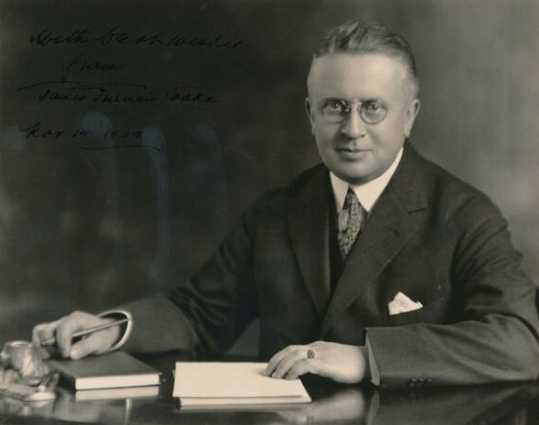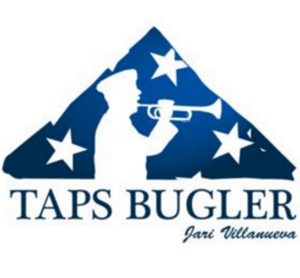The Last Days of John Philip Sousa
On February 22nd, 1932, John Philip Sousa conducted the combined musicians of the The United States Army Band, United States Navy Bandand “The President’s Own” United States Marine Band in front of the US Capitol Building in a performance of the “George Washington Bicentennial” march written in commemoration of the 200th anniversary of Washington’s birth. Five days later, he participated in his final concert conducting the US Marine Band Orchestra in his composition “Hands Across the Sea.” The occasion was the Military Order of the Carabao Wallow of 1932 in Washington.

Sousa was invited to conduct the Ringgold Band of Reading Pennsylvania in a concert commemorating their 80th year. The concert was set for 3:30 p.m. March 6 at the Park Theatre.

On Friday the 4th, he visited his close friend James Francis Cooke, editor of Etude magazine, in Philadelphia and attended a performance of the play “If Booth Had Missed.”Sousa and Cooke talked at length during his brief visit. He asked the editor if he believed in God and then complained that too much modern music would fail because it lacked inspiration because many composers did not believe in God. He talked about his beliefs, elaborating on his conviction that his compositions were only made through the help of a “higher power.”

On Saturday morning Sousa rose early and visited the Theodore Presser Home for Retired Music Teachers. After having lunch at the Penn Athletic Club he boarded the train for Reading where he was met by members of the Ringgold Band, friends and a group from the American Legion Post No. 12. After checking into the Abraham Lincoln Hotel he was taken to the rehearsal.

Sousa rehearsed the band and then attended a banquet at the Wyomissing Club in his honor before retiring for the evening to his room at the hotel. The New York Times reported, “In response to laudatory addresses he made a brief speech, asking to be excused from saying more in order that he might save his strength for the concert ahead of him. He told two or three funny stories, reminiscences of his long career, and sat down amid great applause.”

in Reading, PA, March 5, 1932.
The final piece rehearsed that afternoon was “The Stars and Stripes Forever.”
During the night Sousa passed away of a heart attack in his hotel room. His remains were taken to Washington where he was buried with full military honors in Congressional Cemetery after lying in repose in the Band Hall at the US Marine Barracks.
Thanks to Paul Bierly’s great book on Sousa “John Philip Sousa-American Phenomenon” and the US Marine Band for the above information
A tribute to John Philip Sousa written by A. Austin Harding and read at the Sousa Memorial Program, University of Illinois, on March 7, 1932
“In speaking of John Philip Sousa, I am conscious of my inability to express adequately the eulogy that is due the man and his accomplishments. I have a deep sense of personal loss, not only of a good friend but a great inspiration, which he was to all bandmasters and bandsmen. In the passing of Mr. Sousa not only the musical world, but the entire civilized world has lost a great figure.
Here at the University of Illinois we have a keen sense of a great loss that has come to us. Mr. Sousa evidenced many times his friendship for and his interest in the University of Illinois Bands. He wrote especially for, and dedicated to, the University the march that was played at the beginning of this program and which is used as the signature or identification theme for all of our radio programs. On March 20, 1930, Mr. Sousa did us the honor of accepting Honorary Conductorship of the University Concert Band. He has also indicated on several occasions that he was bequeathing his band library to the University of Illinois where it will remain intact as a permanent memorial and provide an inspiration to thousands of young musicians in the years to come.
In addition to his great musicianship, Mr. Sousa was blessed with a most charming and gracious personality. Everyone who knew him loved him. One of the finest tributes to the man is the fact that he retained the friendship and respect of everyone who has ever worked with him or for him. Born in the shadows of the Capital in Washington, he has always been intensely patriotic and his famous march “The Stars and Stripes Forever” is regarded universally as the national march. Mr. Sousa was a man of many accomplishments and interests. His fame as a bandmaster was only exceeded by his popularity as a composer. This combination made him the most famous musician in the world. People in every corner of the Earth who may not have heard music in the higher and less understood forms are familiar with the Sousa marches.
In addition to these accomplishments he was an author, having written several novels, as well as librettos for some of his operas. He loved outdoor life and sports. He was an enthusiastic horsemen and a fine shot, having until the time of injury of his left arm, shot each year in the National Trap Shooting Contest. He was a valued member of prominent fraternal and civic organizations. During the First World War he put his prestige and reputation at the service of the government in organizing and personally directing the monster band assembled at the Great Lakes Station and was commissioned Lieutenant Commander in the United States Naval Reserves in recognition of that service to his country.
He generously contributed his time and energy to such worth-while projects as the National School Band Contests, the National Music Camp and the American Bandmasters Association, of which he was its Honorary Life President.
John Philip Sousa was a great and unique personality and his death has left a vacant niche that cannot, I believe, be filled by any living person.”

